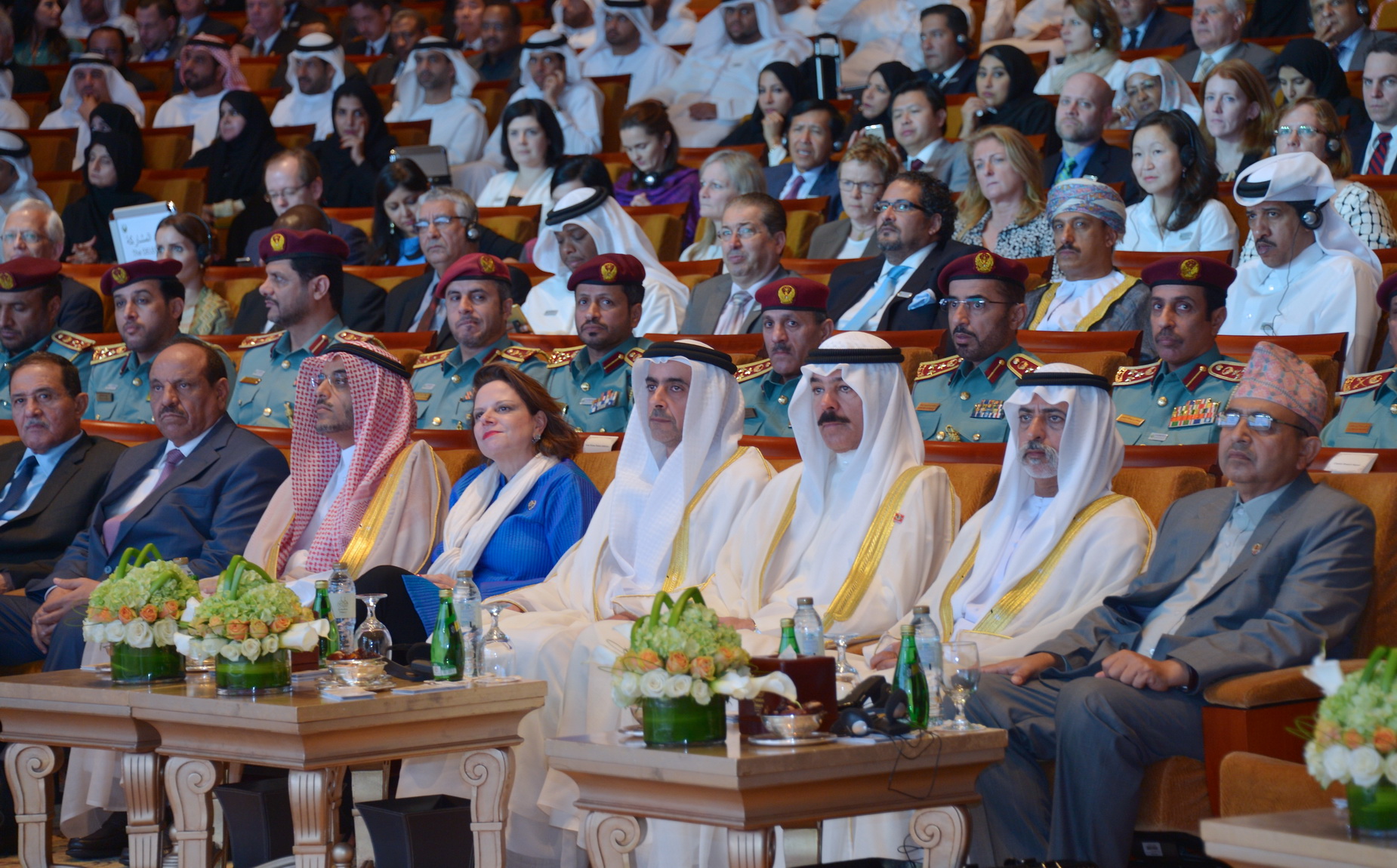Forty-one countries, along with numerous technology companies and civil society organizations, last week pledged their continued support for, and vowed to take additional action in, the ongoing fight against the online proliferation of child sexual abuse imagery.
WePROTECT Children Online, the global initiative launched by U.K. Prime Minister David Cameron in 2014, held a second international Summit in Abu Dhabi Nov. 16 & 17, presided over by Sheikh Mohammed bin Zayed Al Nahyan, Crown Prince of Abu Dhabi and Deputy Supreme Commander of the United Arab Emirates Armed Forces.
On the second day, I had the pleasure of addressing the summit as industry’s representative to the WePROTECT Children Online International Advisory Board (IAB). The board, formed in the wake of the first WePROTECT Summit in December 2014, was tasked with, among other things, helping to ensure all stakeholders have an interest in the initiative’s success. Three fellow IAB members also addressed the summit: Dorothy Rozga, Executive Director of ECPAT; Maud de Boer-Buquichio, United Nations Special Rapporteur on the sale of children, child prostitution and child pornography, and Richard Downing, Deputy Assistant Attorney General from the U.S. Department of Justice. Our session was moderated by Ernie Allen, IAB chair and long-time president and CEO of the U.S. National Center for Missing and Exploited Children (NCMEC).
In my remarks, I emphasized the important role of industry in the fight against online child sexual exploitation and abuse, and on the IAB. Indeed, industry needs to continue to be involved in this epic plight on numerous levels.

Yet, there are a few core themes that – in the midst of summits, initiatives and Statements of Action – we cannot lose sight of, as the technology industry, the IAB or as a broad, global community confronting a daunting mission.
First, we must recognize that the imagery that pollutes our online services is distinctive content. The sexual exploitation and abuse of children and the online dissemination of imagery documenting those crimes is truly a unique problem. Child sexual abuse material is universally despised and abhorrent – contraband that is illegal on its face. Radioactive even, destroying everything that it touches and everything that touches it.
Second, the proliferation of child sexual abuse material (CSAM) is a global issue that we must face as a unified, international community, and we must tackle all aspects of the problem, bringing to bear our own distinct skills and abilities. As citizens from more and more countries join the digital age, this unique problem – unfortunately – is likely to grow. Connectivity offers so many benefits and opportunities, but connectivity and poverty can be a toxic combination, bringing significant monetary pressure to the dynamics that fuel online child exploitation.
Additionally, a phrase we often tout when referring to a variety of online safety issues is “our shared responsibility.” Nowhere is that truism more pertinent than in tackling online child sexual exploitation and abuse.
Accordingly, we need to ring-fence CSAM as unique, peerless content, and disallow analogies to other forms of vile material on the public Web. In fact, our effectiveness as a global community in bringing other responsible companies to the table and encouraging them to act could hinge on our very ability to cordon off child sexual abuse content.
Furthermore, industry needs to continue to innovate with new tools and techniques to disrupt the spread of CSAM; we must report offenders to appropriate authorities, and basically engineer a “digital blockade” against these offenders across the online space.
As a global community, we need to consolidate efforts, combine resources and continue to share knowledge, realizing it’s less about activity, “credit” and output, and more about impact, results and outcomes.
From summit to summit, in less than a year, we’ve brought tremendous energy, focus and attention to a very serious and formidable task. Working together via the next incarnation of the WePROTECT IAB, we need to continue these efforts and intensify them even further.
I thank and commend the United Arab Emirates (UAE) for taking up Prime Minster Cameron’s and the U.K. government’s cause, and for helping to amplify further the gravity of not just online child sexual exploitation, but the need to protect children and all people online. As with most things, there is more to be done, and Microsoft stands ready to do our part.
For more about WePROTECT, see the U.K. and UAE websites, and to learn more about Microsoft’s commitment to children’s online safety, please visit this link.
At the time of writing of this post, Jacqueline Beauchere’s title was Chief Online Safety Officer.
